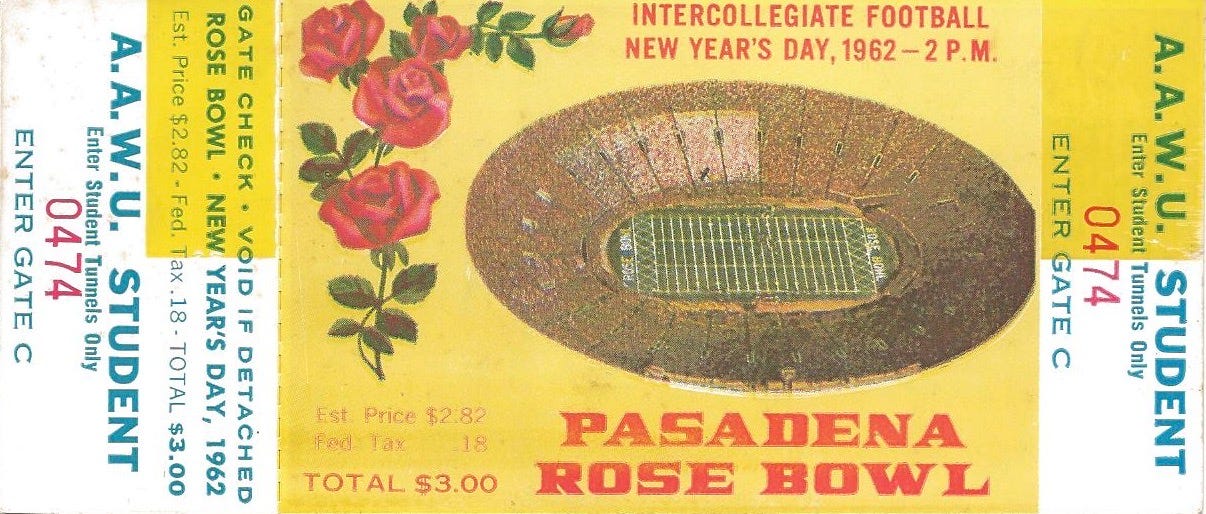Today's Tidbit... Gamesmanship, the Big Ten, and the Rose Bowl
Fans today recall the Big Ten, Pac-8/10/12, and Rose Bowl partnership as seventy-plus years of marital bliss, interrupted near the end by outsiders sticking their noses into a place they did not belong. But the relationship was strained at times when one or another of the partners said, "It's not you. It's me that's the problem."
One of those times came in 1960 when both partners were going through some things. Big Ten and Pacific Coast Conference (PCC) teams played one another in Pasadena from 1947 through 1959, at which point the PCC dissolved amid player payment scandals at multiple schools. Replaced by the Athletic Association of Western Universities (AAWU), which included only Washington, Cal, Stanford, UCLA, and USC, the AAWU champ earned the West Coast slot for the 1960 Rose Bowl game.

Amidst the West Coast turmoil, the Rose Bowl's more significant challenge to maintaining the partnership came from the Midwest. Neither conference allowed athletic scholarships beyond financial need at the time, and teams could not play in bowls other than the Rose. Still, those on the Big Ten’s athletic side wanted the tools to compete with conferences that offered their athletes more. The Big Ten faculty membership thought otherwise, with the Ivy League model being to their liking.
So, when the Big Ten's Rose Bowl agreement expired after the 1960 game, it presented an opportunity to set a new course, and the Big Ten faculty members voted not to renew the Rose Bowl pact, citing the academic challenges of playing football five or six weeks after the regular season ended. The faculty decision was not met with open arms by the jocks, and that showed when they upped the ante. Rather than accept the ban on post-season play for football only, they reasoned that what's good for football would be good for all, so the Big Ten's athletic directors banned post-season play for all sports. While the ADs positioned their vote as supporting a consistent policy across sports, their true intention was to put the faculties in a bind, showing their decision was illogical and unpopular.
Sure enough, by May 1960, the faculty committee reversed its decision and eliminated the "need-based" cap on athletic scholarships. Moving forward, the Big Ten could compete on equal terms with other conferences. Its New Year's Day tradition continued in Pasadena when Minnesota met Washington in the 1961 Rose Bowl.

Football Archaeology is reader-supported. Click here to buy one of my books or otherwise support the site.


